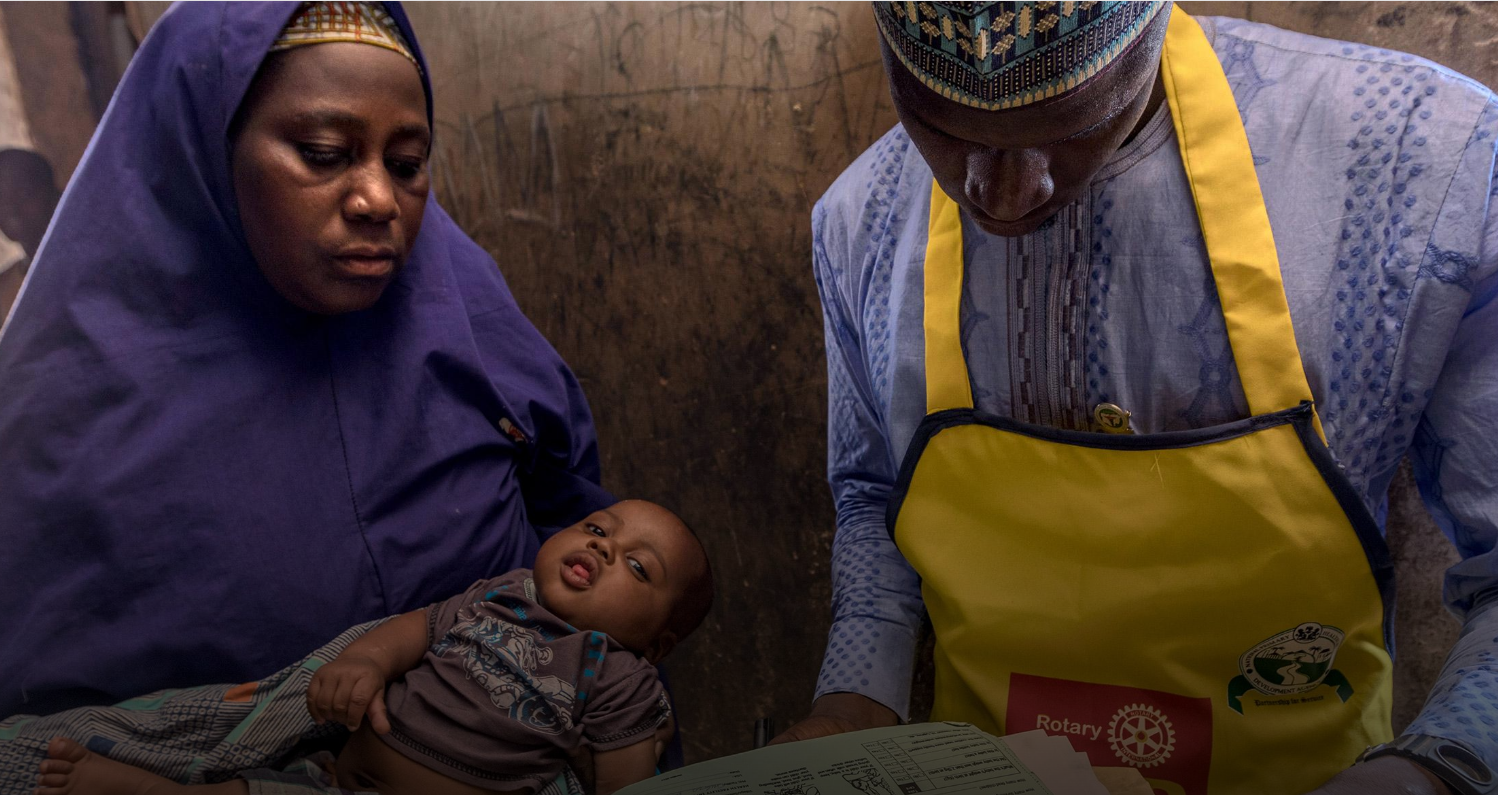
Musa Muhammed Ali, a farmer in Borno state, Nigeria, has had to deal with the many ways polio has affected his life. For instance, he used to have to pay for transportation when he needed to buy feed for his animals. But after receiving a hand-operated tricycle funded through Rotary’s PolioPlus grants, Ali (pictured above) can now spend that money on other necessities. His life was changed by the “plus” in PolioPlus.
When we talk about PolioPlus, we know we are eradicating polio, but do we realize how many added benefits the program brings? The “plus” is something else that is provided as a part of the polio eradication campaign. It might be a hand-operated tricycle or access to water. It might be additional medical treatment, bed nets, or soap. A 2010 study estimates that vitamin A drops given to children at the same time as the polio vaccine have prevented 1.25 million deaths by decreasing susceptibility to infectious diseases.
Polio vaccination campaigns are difficult to carry out in northern Nigeria, where the Boko Haram insurgency has displaced millions of people, leading to malnutrition and spikes in disease. When security allows, health workers diligently work to bring the polio vaccine and other health services to every child, including going tent to tent in camps for displaced people. The health workers pictured here are in Maiduguri, the capital of Borno, where the insurgency began 10 years ago.
The Global Polio Eradication Initiative (GPEI), of which Rotary is a spearheading partner, funds 91 percent of all immunization staff in the World Health Organization’s Africa region. These staff members are key figures in the fight against polio — and other diseases: 85 percent give half their time to immunization, surveillance, and outbreak response for other initiatives. For example, health workers in Borno use the polio surveillance system, which detects new cases of polio and determines where and how they originated, to find people with symptoms of yellow fever. During a 2018 yellow fever outbreak, this was one of many strategies that resulted in the vaccination of 8 million people. And during an outbreak of Ebola in Nigeria in 2014, health workers prevented that disease from spreading beyond 19 reported cases by using methods developed for the polio eradication campaign to find anyone who might have come in contact with an infected person.
Rotary and its partners also distribute soap and organize health camps to treat other conditions. “The pluses vary from one area to another. Depending on the environment and what is seen as a need, we try to bridge the gap,” says Tunji Funsho, chair of Rotary’s Nigeria PolioPlus Committee. “Part of the reason you get rejections when you immunize children is that we’ve been doing this for so long. In our part of the world, people look at things that are free and persistent with suspicion. When they know something else is coming, reluctant families will bring their children out to have them immunized.”
Eighteen million people around the world who would have died or been paralyzed are alive and walking because of the polio eradication campaign. Health workers and volunteers supported by PolioPlus grants have built an infrastructure for delivering health care and collecting data that, in many parts of the world, didn’t exist before. It’s already being used to improve overall health care and to fight other diseases, proving that the legacy of PolioPlus is more than eradicating a deadly disease from the planet — it’s also building a stronger health system that provides better access to lifesaving interventions for the world’s most vulnerable children.
